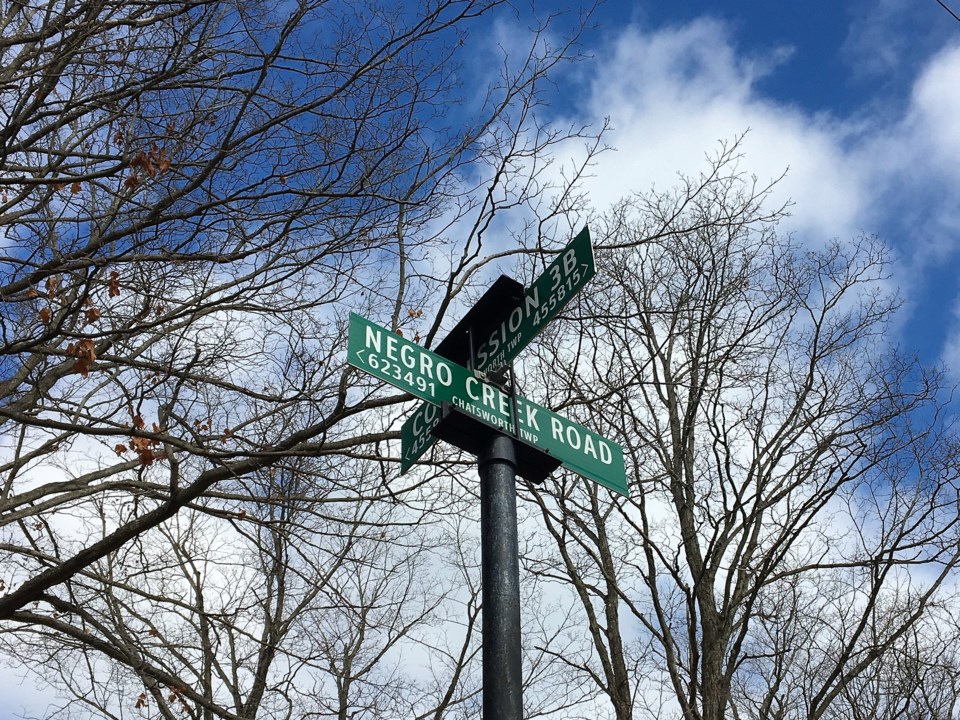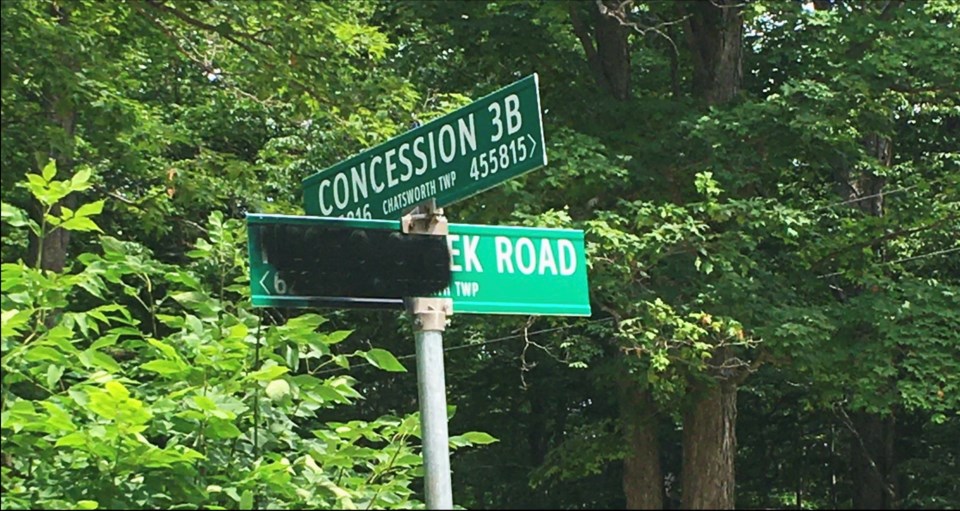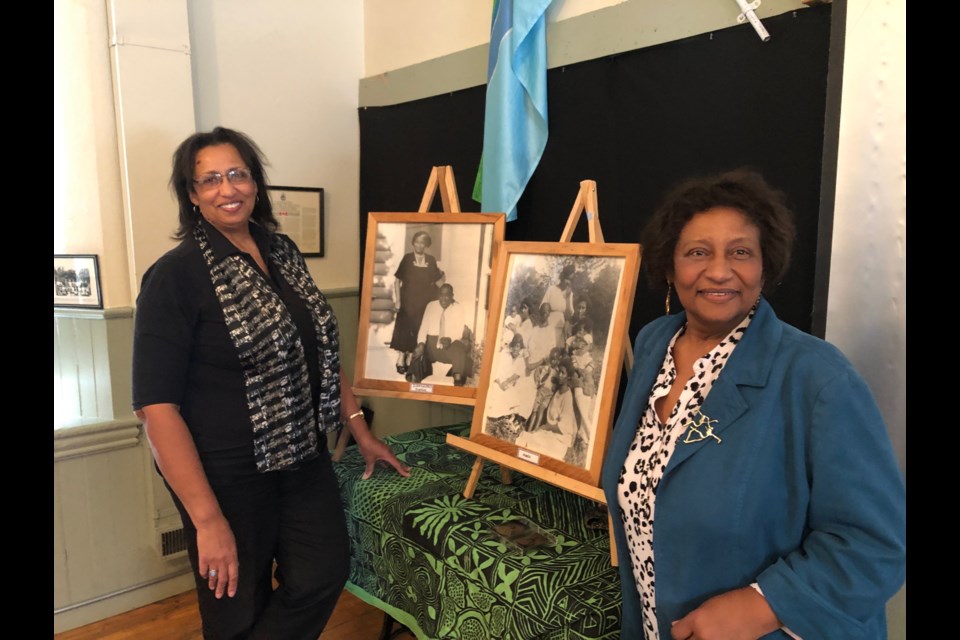The Wilson sisters marked the first day of Black History Month this year celebrating a win that will help tell their family story and the history of the area.
On Feb. 1, their grandmother's birthday, Carolynn and Sylvia Wilson and several others sat in the council chambers for the Township of Chatsworth, once again pushing for proper recognition of the Black settlement called Negro Creek.
The Collingwood residents are among the many descendants of the villagers of Negro Creek, a name that only remains because of their work in the same council chambers 28 years ago. In 1995, a delegation before what was then called Holland township, convinced the local elected representatives to change the newly renamed Moggie Sideroad back to Negro Creek Sideroad, which would refer to the former Black community there.

On Feb. 1, 2023, a group of descendants, friends and neighbours were petitioning council to support the erection of a stone marker and plaque that would bring attention to the history of the place. Council agreed unanimously.
“It’s significant because it was not just people of colour standing up and saying ‘it has to be righted,’” said Sylvia. “Everybody is standing up and saying the wrongs have to be addressed and we have to go through the healing process and we have to make it right.”
A neighbour has offered a rock for the monument and the group of descendants, friends, and neighbours is working on the inscription. The township council has been tasked with finding the right spot to put the stone and plaque. The Negro Creek community was located in what is now Chatsworth Township, and what was formerly known as Sullivan and Holland Townships.
“Our Black folks were there before the white people moved in,” said Carolynn. “There’s enough archival documentation that says they owned property in the 1800s.”
Sylvia says she often reminds people it’s not just Black history, it’s everybody’s history. It’s the stories of the people who lived, worked, loved and died in the places that surround us.
“It’s a story we have to continue, that we all have to write together,” said Sylvia.
Though the words that will go on the plaque to tell the story of Negro Creek are still being worked out, there are many to choose from.
The research has been compiled by Ben Heywood-MacLeod and Nancy M. Lee at negrocreek.community thanks to a group of people working on the project. It focuses on the ten black families who were part of Negro Creek in 1851.
The Woods family, for example, arrived to the area around 1834 and owned and farmed land. They later moved to Collingwood in the 1860s.
Henry Miller and his wife Priscilla came to Negro Creek from Maryland, US where Henry was born on a plantation. They were the parents of Thomas Henry Miller, a lay preacher and well-known resident of Owen Sound.
These stories and more have been carefully preserved by descendants and friends, and theirs will be part of the story carved into the monument for Negro Creek Road.
The sign for Negro Creek Road gets cut down and stolen regularly, at least 27 times and counting. Sylvia and Carolynn are hoping that with added information on the history of the place and the name Negro Creek, people will be less inclined to steal the sign.

The monument is a beginning, according to the Wilson sisters. They and others know there was once a cemetery there for the Negro Creek community. The graves were paved over for a road.
“One of our descendants, he’s still living, he knows about it. His uncles and his mother often talked about it,” said Carolynn. “We heard the same stories and we wrote it all down.”
She and Sylvia think more will come out soon about the cemetery, and hopefully work can be done to recover the respect owed to those resting there.
In the meantime, the stone monument is a positive step.
“That’s our starting point for moving forward from all the past,” said Carolynn. “We’re going to heal together.



